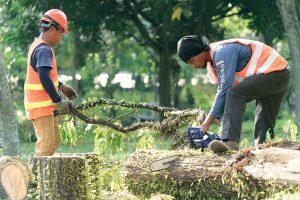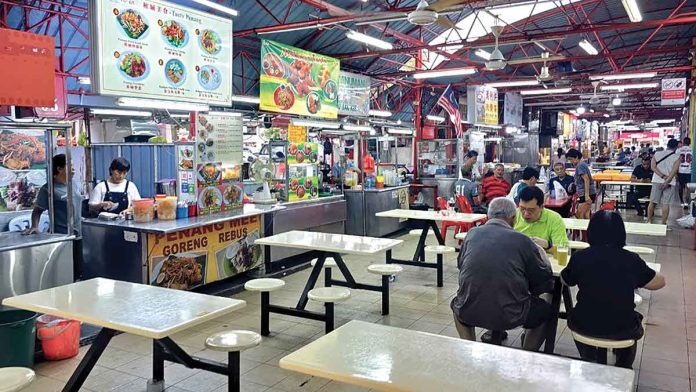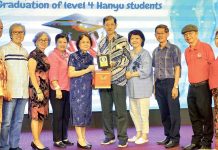Subang Jaya is blessed with cafés, restaurants, and mamaks at every corner. Yet for all our reputation as a food-loving city, we lack one important thing — a proper food court that offers variety, affordability, and the kind of vibrant dining atmosphere that brings a community together.
As a resident, I often find myself frustrated by the limited dinner and supper options available nearby. Craving a comforting bowl of soupy noodles late at night? More often than not, the only option is an outlet serving instant noodles soup at premium prices. Surely, we deserve better.
Just last month, I made a trip to SS2’s famous Wai Sek Kai. The place was bustling even before sunset. Rows of stalls offered everything from char kuey teow to claypot chicken rice, satay to sizzling hot plates – the kind of variety that sparks joy and makes eating out an adventure. Choosing was almost impossible. It took me 15 minutes to decide, and in the end, I ordered two dishes because I simply couldn’t make up my mind. My other half rolled her eyes, but truthfully, that’s the fun of dining at a food court: the choices are endless, and indulgence feels forgivable.
Subang Jaya deserves its own version of this. A clean, spacious, and well-curated food court could serve more than just hungry residents – it could be a community hub. A place where families gather for weekend meals, students hang out after class, and food lovers explore different cuisines without breaking the bank.
We have the demand. We have the appetite. What we need is for someone — whether the local council, developers, or private entrepreneurs — to see the potential and deliver it. Until then, many of us will continue making the trip out of Subang Jaya for that sense of food adventure.
But wouldn’t it be nicer if we could find it right here at home?
Navigating Budi95 Together
This October, we at SJEcho have dedicated a good portion of our pages to unpacking the Government’s recently rolled out Budi95 initiative. Like many of you, we wanted to understand how this new fuel subsidy scheme works and, more importantly, how it affects our everyday lives at the pump.
The good news is, the system isn’t as complicated as it may sound. The most straightforward way to verify your eligibility is to simply present your MyKad at the petrol station counter before paying for the RON95 fuel you intend to purchase. For those who are more comfortable with digital solutions, several petrol companies – as well as Touch ’n Go – have rolled out apps to make checking and payments more seamless.
Of course, as with any new system, it will take time for Malaysians to fully get used to it. There will be hiccups and there will be frustrations. But do not worry. Petrol station dealers have assured us that help will be close at hand. Many have committed to mobilising their staff to guide and assist motorists who may be unsure of the process.
Change often brings inconvenience before it brings improvement. Budi95 is no different. What matters is that we remain patient, adaptable, and supportive of one another as we make this transition. At the end of the day, the initiative is meant to ease the burden on households and together, we can make sure it works as intended.
We have stepped into the final quarter of the year, and as always, the question is—what lies ahead? For one, the whole country will be transitioning into the inter-monsoon phase, or what many of us simply call the “monsoon season.” Expect rainy weather, often arriving unannounced, which means outdoor activities will have to be planned with extra caution.
 This time of year, has always been a test of preparedness. Sudden downpours, water ponding in low-lying areas, and the inconvenience of disrupted routines are almost part of the script. But the silver lining is seeing the local council spring into action. Over the past weeks, teams have been trimming overgrown trees, especially along main roads, to reduce the risk of falling branches during heavy winds and storms. It is a welcome sight, and one that reassures residents that safety is being prioritised.
This time of year, has always been a test of preparedness. Sudden downpours, water ponding in low-lying areas, and the inconvenience of disrupted routines are almost part of the script. But the silver lining is seeing the local council spring into action. Over the past weeks, teams have been trimming overgrown trees, especially along main roads, to reduce the risk of falling branches during heavy winds and storms. It is a welcome sight, and one that reassures residents that safety is being prioritised.
Still, it cannot only be the responsibility of the authorities. Each of us has a role to play in minimising risks whether by keeping drains around our homes clear of debris, reporting dangerous tree branches, or simply driving more carefully in slippery conditions.
The monsoon months are a reminder that while nature sets its own pace, our preparedness determines how smoothly we navigate it. As we step into October, let’s embrace the season not with dread, but with mindfulness and cooperation.
Have a good month ahead.













